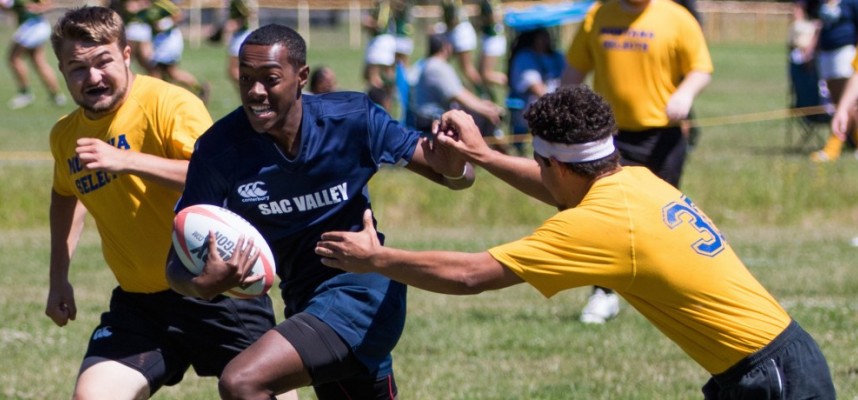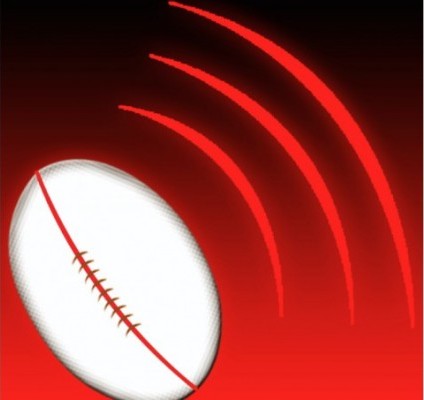All-Star Rugby 2017 - a Rundown
All-Star Rugby 2017 - a Rundown

Dan Bandoni photo.
USA Rugby has selected four host venues for the High School-level Regional Cup Tournaments in the summer.
One more venue will be announced later.
The four venues are:
South Regional Cup, Life University, Marietta, Ga. June 16-18
Rocky Mountain Challenge, Aurora, Colo. June 17-18
Midwest Regional Cup, Fishers, Ind., June 24-25
Great Northwest Challenge, Portland, Ore., June 23-24
We checked in with USA Rugby Youth & HS Manager Kurt Weaver to nail down some key details about the all-star season. Notably, we wanted to know why there was no mention of middle school competitions on USA Rugby’s RCT web page, and also why there were only four venues listed.
Here’s what we found out:
- There will be five tournaments, but the final Northeast tournament venue has not been decided yet. Weaver and the USA Rugby organization decided to list the other four so that those tournaments wouldn’t have to wait.
- Middle School rugby is not mentioned because Weaver’s department doesn’t govern middle-school all-star play. “We don’t suggest it because we don’t want to encourage middle-school all-star rugby. Each tournament will likely have middle school rugby at least as an option.”
- There is a growing movement among players and groups aged 18-20 to have a U20 all-star competition, and it’s possible that such competition would piggy-back onto existing HS RCTs. “That level is asking for a place to do things, and since we already have these set-ups [already], I think for tournament to expand, they’re probably going to expand north not south.” Weaver used north and south as an analogy for age - they will expand older, not younger.
- The ongoing discussion about whether sophomores and freshmen can play on varsity-level teams is still a discussion. The good news is that Weaver and USA Rugby Performance Director Alex Magleby have been in deep discussions about it.
Most coaches within the all-star arena said they don’t like the idea that a high-performing sophomore would not be allowed on a varsity select side. (We saw the somewhat ridiculous situation this year of Bailey Wilson being the captain of United U19s in Utah, but as a sophomore, forced to play for the Rugby Utah JVs, only to later captain the USA U19s against Canada.)
- Weaver said the nomenclature needs to change, and instead of talking about Varsity and JV teams, we have moved to 11th/12th-grade and 9th/10th-grade teams. Even so, despite the USA Rugby website saying only juniors and seniors can play on the 11th/12th-grade teams, that’s not entirely the case, said Weaver.
“With this process, we’re going through a mountain of data,” said Weaver. “What this has told us is really there isn’t good data out there to tell you age is better than grade, and this process is better than that process.”
There will be a gray area, which basically says this: a sophomore who is of a certain age (not specified by Weaver) could still play with the 11th/12th-grade team, and a junior who is younger than a specific cutoff could play with the 9th/10th-grade team. But a freshman can never play up a level, and a senior can never play down a level.
- Coaches of single-state all-star teams have voiced a dislike of the growth of independent all-star teams, while those who have started independent all-star teams say that is the direction of the RCT format.
"State-based coaches don't like it and academy guys love it," said Weaver. "I don't really have an opinion; I want to see what the market will bear. The only thing I have an opinion on is that I don't want to see State Organizations spending 100s of hours of administrative headache and many thousands of dollars on all-star teams. That doesn't mean a state shouldn't put an all-star team together; they can still do that if it's a pay-to-play concept or find sponsors for it and ave someone else administrate it."
Weaver said state-based organizations have gone from spending most of their time and resources on all-star teams to spending more time on player development, medical and safety initiatives, organizing their leagues, and bringing more players to the game.
Weaver also said that many state teams cover too big an area; there's room for more players to play at an all-star level, and creating regional, rather than state-only, teams makes it easier for some players to travel.













